Broken promises: Afghan women abandoned but defiant a year after US withdrawal
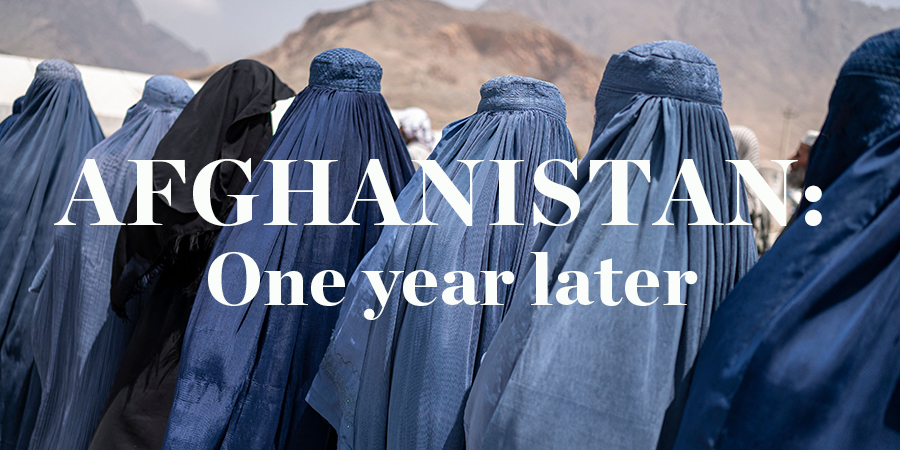
Fatima says the Taliban have been hunting her since the U.S. withdrew from the country a year ago.
Speaking from an undisclosed location in the northern Afghan city of Mazar-i-Sharif, the former translator who worked with a U.S-headquartered relief organization said she is now in hiding, fearful of being found out by the new regime.
“The Taliban came to my father and told him they knew his daughter was working with U.S. ‘spies’. [They] don’t like women working with U.S. projects,” Fatima, whose name has been changed at her request, told The Hill.
“I don’t go out. My children don’t go out. My parents live with other family members because they are scared.”
Fatima, 36, is one of many Afghan women who say that they’ve been let down by the U.S. and Western allies after two decades fighting in Afghanistan. Now at the mercy of the Taliban, they say they have not only lost all freedoms, but are struggling to feed their families amid tightening restrictions and a nosediving economy.
“Before, all girls and women were free to go to school, to work, go out for fun, or wear whatever clothes they wanted,” said Shaista Safi, 34, a former Afghan government employee and member of Afghanistan Women’s Solidarity Team, which still protests against the Taliban government despite the threat of reprisals.
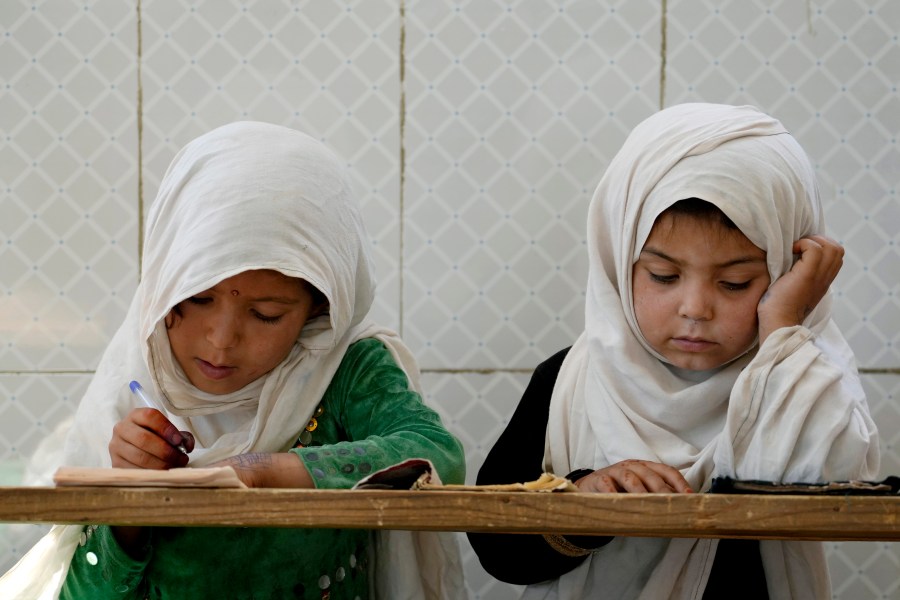
“But now we don’t have any of these freedoms. We don’t go to school. We don’t have jobs. We don’t have the freedom to go out, or to travel without a man. We don’t even have our basic rights. No work. No food. No education,” she said through an Islamabad-based Afghan translator who managed to flee last year.
During 20 years in Afghanistan, the U.S. made empowerment of girls and women a top priority of its mission in the country.
In 2001, at the start of the war, then first lady Laura Bush kicked off “a worldwide effort to focus on the brutality against women and children by the Al Qaeda terrorist network and the regime it supports in Afghanistan, the Taliban.”
A decade later, during the Obama administration in 2010, then-Secretary of State Hillary Clinton pledged to Afghan women that “we will not abandon you” and vowed to “stand” with them “always.”
In July, however, Secretary of State Antony Blinken conceded that “women and girls have largely been erased from public life” under the Taliban.
“It’s a terrible waste. It’s especially difficult to accept because we all remember how different it was not so very long ago.”
Secretary of State Antony Blinken
There were indeed slow but steady signs of progress for Afghan women over the last two decades.
A 20-year review by UNESCO, for example, found that the number of girls in secondary school rose from around 5,000 in 2001 — the year of the 9/11 attacks and the US invasion — to around 90,000 in 2018.
Additionally, by 2020, about 27 percent of the Afghan parliament was composed of women — giving them an important voice in their own government.
Soon after the U.S. withdrew from Afghanistan, the Biden administration appointed Rina Amiri, a former U.S. government adviser, as special envoy for Afghan women, girls and human rights. It also launched a “consultative platform” for Afghan women and civil society in May this year to deepen the U.S. government’s engagement in the country.
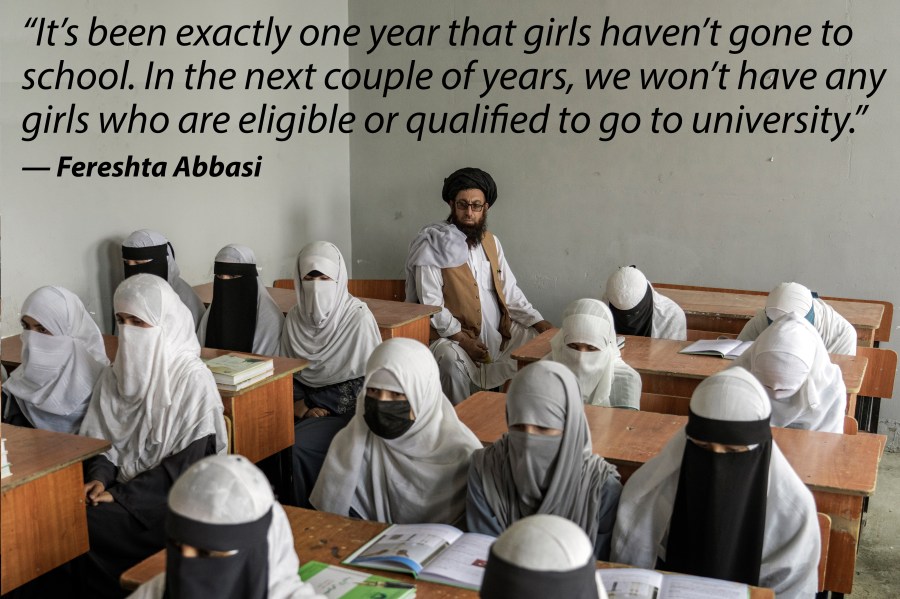
However, that has done little to curb the sense of betrayal felt by Afghan women like Fatima, who at least want U.S. help in escaping the militants now in control of the country.
“I don’t think the U.S. has completed the promises it made,” says Fatima, who remains in hiding along with her husband, a former defense lawyer.
“Both my husband and I had made a beautiful life for ourselves, but now we both are jobless. We are living at home. Sometimes we cannot even find food for my children. We [get] the money to feed our children, rent or clothes from a shelter.”
Fereshta Abbasi, a London-based researcher with Human Rights Watch’s Asia division, said girls are banned from attending secondary school, making any attempt to attend university an impossible dream.
And while some women are technically allowed to attend university, harsh conditions imposed by the Taliban — including a gender segregation policy — make it almost impossible for them to go.
“It’s been exactly one year that girls haven’t gone to school,” Abbasi adds. “In the next couple of years, we won’t have any girls who are eligible or qualified to go to university.”
Virtually all aspects of life have been dramatically altered for Afghan women. Before the fall of Kabul, women were allowed to travel without a man, and — at least in urban centers — were able to go to work and to parks.
Now, Amnesty International says, women and girls face a bleak future in which these rights have been largely rescinded.
“The Taliban are deliberately depriving millions of women and girls of their human rights, and subjecting them to systematic discrimination,” said Agnès Callamard, the group secretary general, in July.
“If the international community fails to act, it will be abandoning women and girls in Afghanistan, and undermining human rights everywhere.”
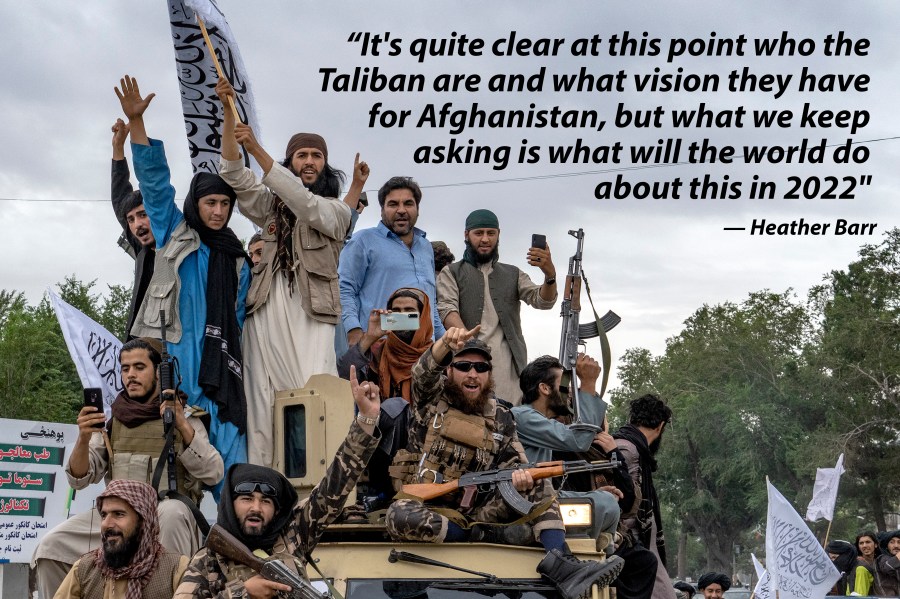
Women are also less likely to qualify for U.S. visas that might allow them to leave the country.
“I weep. … Every day I see posts from other people who have money ready and are waiting for a flight or for their visas or an interview but can’t get out,” said Fatima. “Like me, I’m a woman and I worked for the U.S. government and for women’s rights, but unfortunately I remain in Afghanistan.”
According to statistics from Association of Wartime Allies (AWA), a member-based organization focused on saving the lives of Afghan and Iraqi applicants for Special Immigrant Visas (SIV), women make up less than 10 percent of the at-risk Afghan community who are able to apply for an SIV, due to men holding most of the military-related jobs making them eligible for the program.
However, the State Department told The Hill that it does not track statistics for visas broken down by gender.
It added that it continues to receive and process submissions for Afghans who may be eligible for referral to the U.S. Refugee Admissions Program.
“We also continue to identify ways to support other Afghans at risk,” a State Department spokesperson added.
Now activists are demanding that the U.S. and the West open more avenues for women looking to seek asylum.
According to Laura Deitz and Sara Gilliam, the co-founders of Task Force Nyx, an NGO that provides emergency humanitarian support to the most at-risk women activists, a significant portion of Afghan women employed by foreign organizations were tasked with sensitive jobs, such as running safehouses for victims of domestic violence or serving as legal advisers for victims of gender-based violence.
Despite the fact that these roles were often extremely risky, Dietz said women who did the work haven’t been given any sort of visa or referral pathways. Since the fall of Kabul, many of these women have been detained — and some tortured — by Taliban authorities, she said.
“We’ve given them absolutely nowhere to go, and that isn’t just ‘we’, as in the United States, to be quite honest. That’s we, the West,” Gillam adds. “That’s where the global community should really be standing up for these women.”
And while the international community struggles to find solutions, Afghan women are struggling to see a future that looks anything like what the U.S. promised over the past two decades.
“I’ve had an ache in my heart for months from worrying too much. I know I cannot have a future in Afghanistan and I don’t have an avenue to leave,” Fatima says. “My daughters are seven and five. They must go to school at this age. I get depressed when I think of their future.”
The State Department in an emailed response to The Hill’s request for comment for this article said, “Our commitment to the people of Afghanistan is enduring. We will support Afghans in as many ways as we can by providing humanitarian assistance in partnership with the international community.”
“We recognize it is currently extremely difficult for Afghans to depart Afghanistan or find a way to enter a third country, and they may face significant challenges fleeing to safety. The United States continues to call for safe passage for all those who wish to leave Afghanistan. We call on the Taliban to allow freedom of movement for all Afghans and strongly encourage Afghanistan’s neighbors and other countries to allow entry for Afghans seeking protection.”
-State Department spokesperson in an email to The Hill.
Even amid worsening conditions, some Afghan women in the country have resisted the Taliban.
As the world marked the one year anniversary of the Taliban’s takeover of Afghanistan this month, around 40 women in Kabul took to the streets — despite the threat to their own safety — to protest their government’s hard line, fundamentalist policies.
This resistance began mostly as an online campaign and has been most notable in Kabul, where on Aug. 13 Taliban fighters were forced to use guns to disperse a protest by women demanding “bread, work and freedom”. Women at the protest told the BBC that previous protests had been swiftly stamped out, often resulting in participants being beaten.
Resistance has also spread to social media, where Afghan women and their supporters abroad have taken to sites including Twitter and Instagram to call on the international community to take action, using the hashtag “BanTalibanTravel,” which calls on the UN to re-apply a travel ban on the Taliban’s senior leadership.
An open letter from 15 organizations to the UN Security Council was careful to note that allowing a travel ban exemption for Taliban officials to expire would be a targeted gesture — applying to fewer than 15 people — but would send a strong message.
“This action would not hurt ordinary Afghans, yet would effectively send a message that there is international accountability for the Taliban,” the letter said.
The Taliban government itself is far from the only challenge facing Afghan women today.
Research released by Women for Women International in March also highlighted deteriorating access to health care and water as a result of deteriorating infrastructure and a lack of services.
As an example, Abbasi notes that her 40-year-old aunt in the country’s Ghazni province died a “totally preventable death” as a result of a health care system unable to provide even basic services.
“The lack of a health care system and health care services definitely impacts everyone but the effects are stronger on women, especially pregnant women and those who are breastfeeding,” she said.
According to Abbasi, while some aid has been dispatched to the country in the past 12 months, the West’s refusal to recognize the Taliban government continues to stifle the banking system and wider economy.
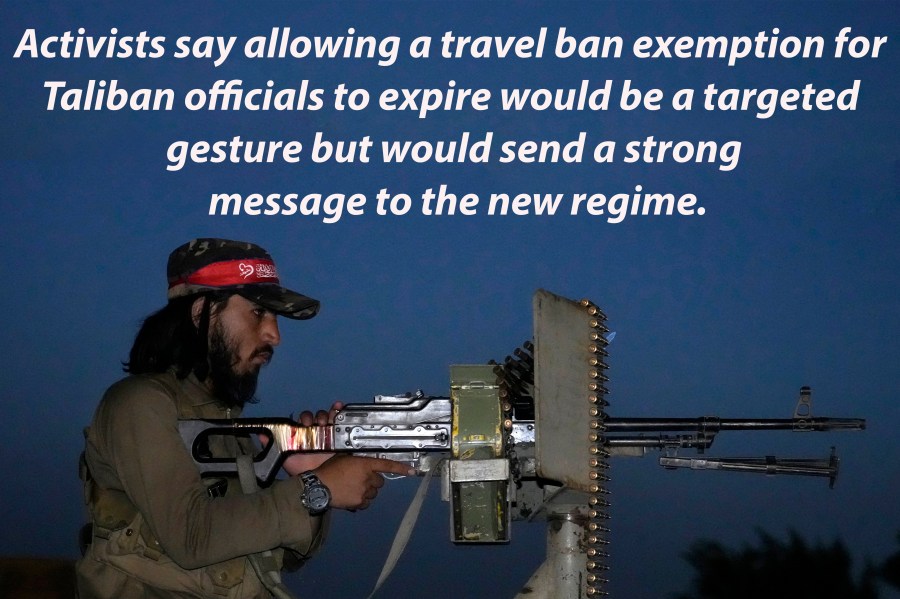
Activists are advocating for the U.S. to release $3.5 billion in frozen Afghan central bank funds in order to help the Afghan people. However, U.S. officials said last week that they had no immediate plans to do so, citing abiding terrorism concerns related to the Taliban.
“By withholding them, we are responsible for the continuing and deepening humanitarian crisis,” said Marie Clarke, chief programs officer for Women for Women International.
Heather Barr, the co-director of the Women’s Rights Division at Human Rights Watch, said the U.S. and its allies must take concrete steps that go beyond condemnation of the Taliban.
“It’s quite clear at this point who the Taliban are and what vision they have for Afghanistan, but what we keep asking is what will the world do about this in 2022,” she said. “There’s been very little resembling actual concern where you do something as opposed to a level of concern where you just write a statement.”
A Taliban spokesperson did not respond to The Hill’s request for comment.
Prior to the fall of Kabul, Barr recalls, the international community was quick to “pat themselves” on the back for their work with Afghan women, such as through the State Department’s yearly Women of Courage Awards.
“I would have felt like there was some kind of feeling for them. Maybe not an obligation, but that it would be embarrassing to one day just say ‘good luck ladies, take care’,” she said. “’You can’t go to school anymore, girls. That’s tough.’”
Copyright 2023 Nexstar Media Inc. All rights reserved. This material may not be published, broadcast, rewritten, or redistributed.

